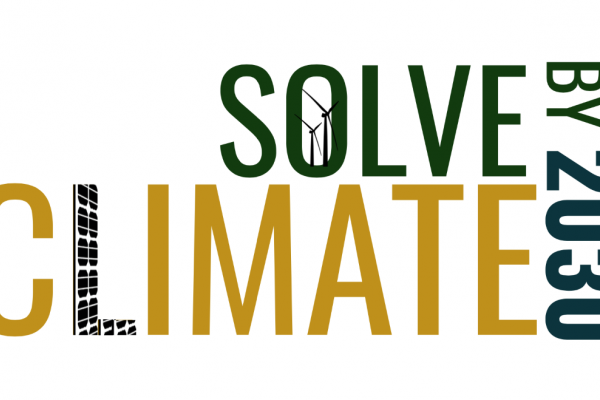
It has been a long Covid-19 year for educators and students. Meanwhile, the planet kept getting hotter, with 2020 tying for the hottest year that humans have ever experienced. Yet it is likely that 2020 will be one of the coolest years in the next 100 unless we change course quickly. As we head into Earth Month (or April), how can educators engage students with this critical issue? This spring, a global climate education project called Solve Climate By 2030 is helping overworked educator, from every subject, bring climate change into the classroom. This opportunity is not just for environmental science classes. Climate change touches every discipline: psychology, political science, engineering, literature, natural science, art, communication, music, economics, philosophy and more.
From April 1-16, more than 100 universities in 45 countries around the world, including almost all 50 US states, are hosting interactive webinars with top experts on climate solutions and climate justice. The webinar discussions will focus on big, ambitious things that we can do in our communities and our universities over the next year to help solve climate change, while also creating much-needed jobs and responding to societal injustices as we recover from Covid.
Please register and join one or all!
Educators can use the webinar to #MakeClimateAClass by assigning it as homework. Then there are one-page Teachers Guides available to lead a one-class period discussion about climate change from the perspective of your subject area. The Guides, for over two dozen different disciplines, have been developed by the global climate education project based at Bard College in New York. They are available in English, French and Spanish. After assigning this local overview of climate solutions as homework, artists can talk with their students about effective climate imagery; literature professors can talk about Climate fiction (cli-fi); psychology educators can discuss climate anxiety and denial, and business professors discuss how companies can help drive climate solutions.
On April 6, join us for a global dialog featuring three panelists who are experts in climate solutions, green recovery, and environmental justice. Local dialog will follow the webinar and panel discussion, and will focus on brainstorming three ways state and local action can put us on the way to solving climate change by the end of the decade.
If you require an accommodation such as live captioning or ASL interpretation to participate in this event, please contact Karina Peggau at peggau.1@osu.edu (email) or 614-688-8279 (phone).
